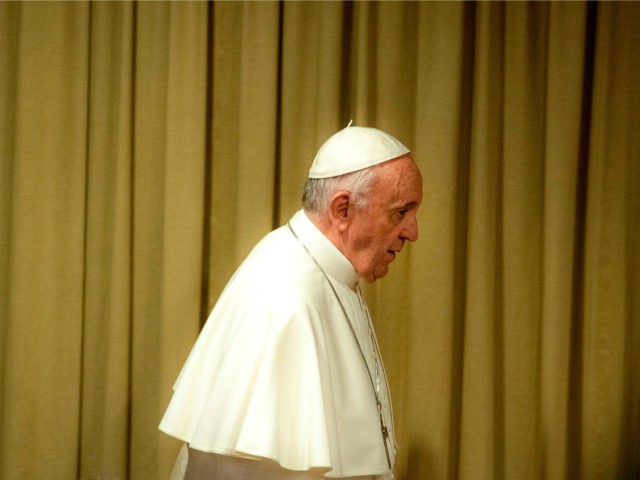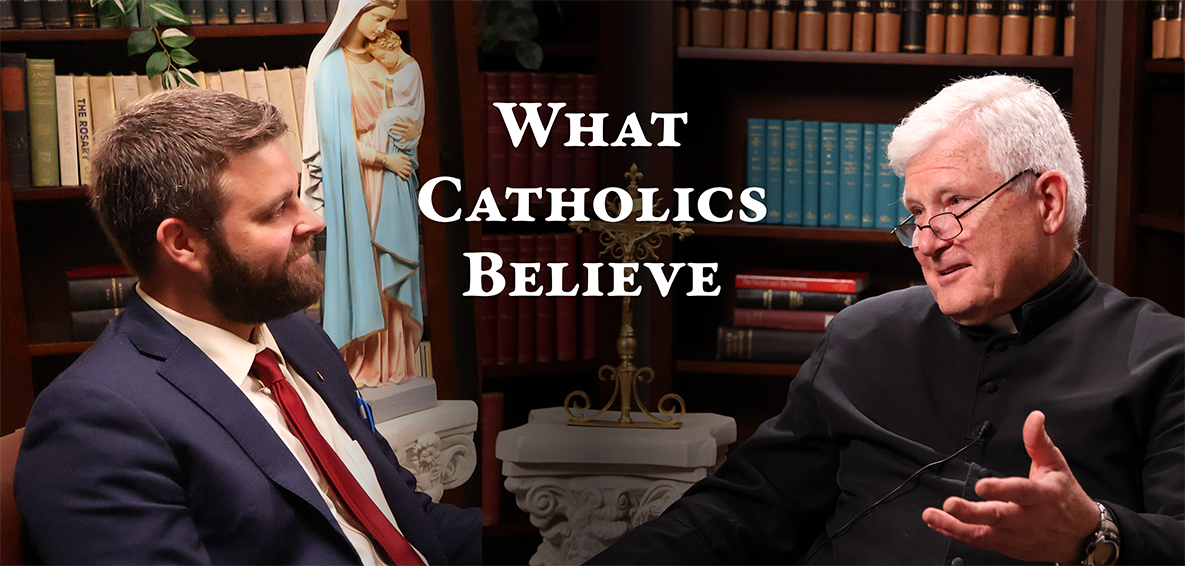Francis: Church Must "Let Go" Her Traditions

The Church needs the "courage" of letting go her traditions, Pope Francis preached during a Mass for Caritas Internationalis (May 23). [Link here]
His starting point was the decision of the Council of the Apostles (Acts 15) that pagans embracing the Faith don't need to accept Judaism first.
Francis deduced from this that the first Christians "left behind" important religious traditions and precepts. But this is not true: These things were not "left behind" but fulfilled.
Then Francis fantasized that the early Christians did not need a "pile of doctrines and traditions" but only the announcement that "God is love," disregarding that Catholic doctrine cannot be and never was reduced to a slogan.
Francis speculated that Christ didn't tell his disciples many things so that the Church would learn "to renounce the desire for clarity and order."
That's not true either: Christ promised his apostles the Holy spirit who would teach them "everything" while confusion and disorder are signs of the devil.
For clarification: Early in his reign of destruction, Francis proclaimed that "the tradition of the Church is change." That is tantamount to saying that the only unchangeable thing about the Church is that the Church is constantly changing. No one should be surprised, therefore, to read the above Modernist statements of Francis (or, if one wishes, to listen to the recorded words of his address to Caritas Internationalis).
Francis tried to position his false teachings in terms of the Apostles' first council in Jerusalem in 51 AD, when they met to decide the problem of the "Judaizers," who insisted that it was necessary to practice Judaism and to follow the law of Moses in order to become a Christian. The Acts of the Apostles tells us of the Apostles' decision that it was not required to be a practicing Jew in order to be a Christian. From this, Francis infers that the early Christians saw the need to leave behind the Jewish traditions in order to move on, and he teaches that Christians (Catholics) must also be willing to abandon the traditions of the Church. As the comment above notes, however, Francis is wrong: the traditions and precepts of the Jewish Law were not simply "left behind" but were merely signs and figures which had been fulfilled by Christ.
Francis wants to sweep away the Sacred Traditions of the Church, the work of centuries of guidance from the Holy Ghost, which he contemptuously dismisses as a "pile of doctrines and traditions." He wants to substitute his own notions of what the Church should be and should do as led by Francis' own "spirit of surprises" to finally hold only the one doctrine Francis accepts: "God is love" — the contemporary meaning of which is, of course, to be determined solely by Francis in economic and social terms (socialism).
And where do this entirely false account of the Church's history and this heretical notion of the Church's foundation lead? Of course, Francis' ideas lead inevitably to the rejection of "clarity and order" in the Church. Again, this is no surprise to those who remember Francis demanding that the young people go out and "make a mess of the Church." Here we have fulfilled the words of Our Lady to Jacinta that there would come a "diabolical disorientation" — and who can doubt that the "diabolical disorientation" has a name: Bergoglio.
A small group of clergy and academics in the novus ordo recently published a letter addressed to the new order bishops in which they accuse Francis of committing the "delict" of public heresy, and calling upon the new order hierarchy to take suitable action. In the course of the following weeks, hundreds of others endorsed the letter. Many others engaged in the controversy over whether or not Francis' teachings were heresy, whether or not he was pertinacious, whether or not it was allowed to even accuse him of heresy, whether or not it was opportune to accuse him, etc. etc. Finally, after two weeks, the Society of Saint Pius X website (https://fsspx.news/en) published a statement, which characterizes the letter as an "extreme measure" which is a "waste of time" and even suggests that it was disrespectful and was "A Radical Approach Doomed to Failure." The SSPX statement goes on to say that Archbishop Lefebvre himself did not and would not today resort to such confrontational tactics with "the shepherds." Thus speaks the reformed SSPX! But those of us who knew Archbishop Lefebvre recall well his stirring denunciations of the Modernists and their blasphemies. Archbishop Lefebvre's voice was no uncertain, faltering and compromising trumpet but was a clear and ordered call to arms in the defense of the Faith and the Church.

